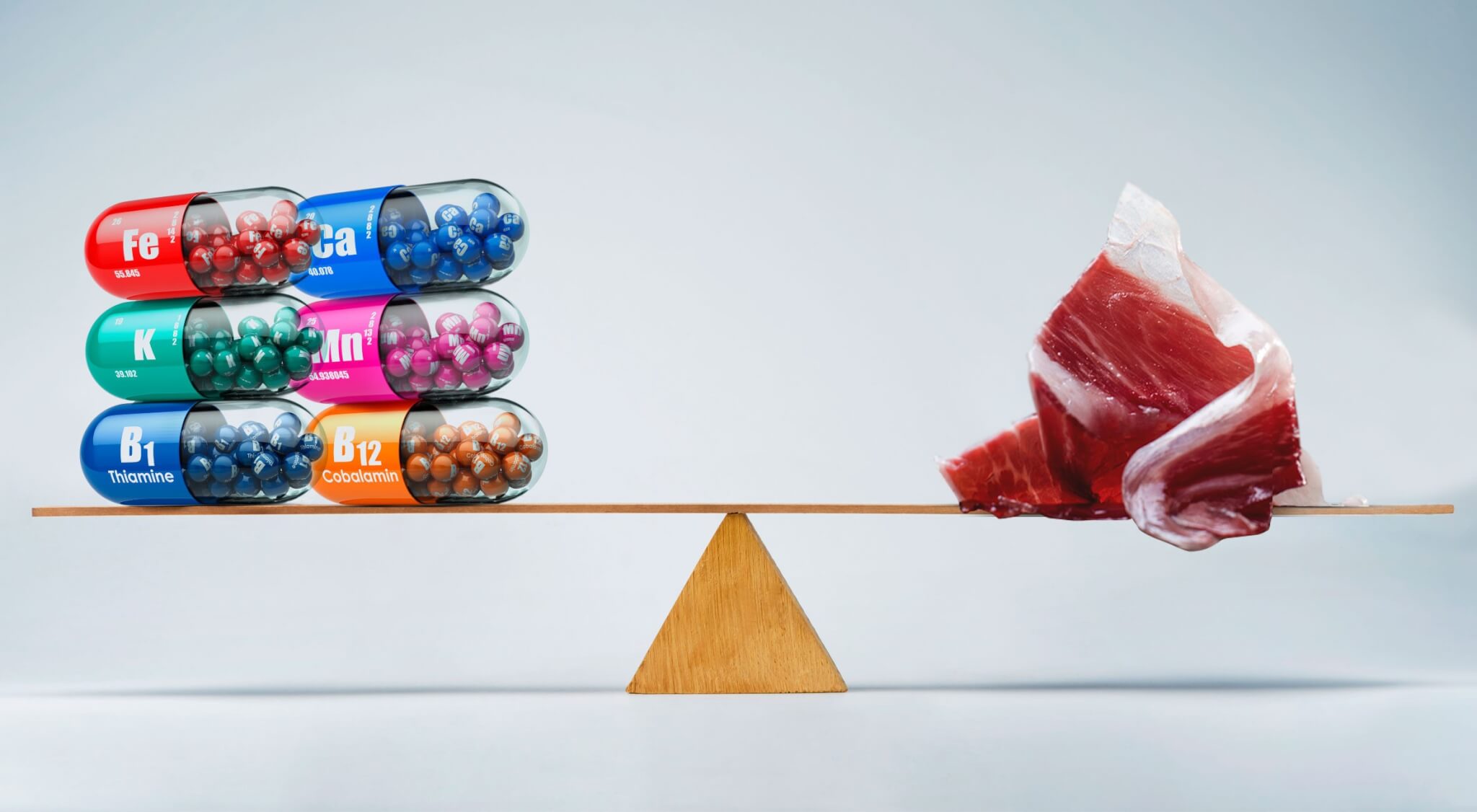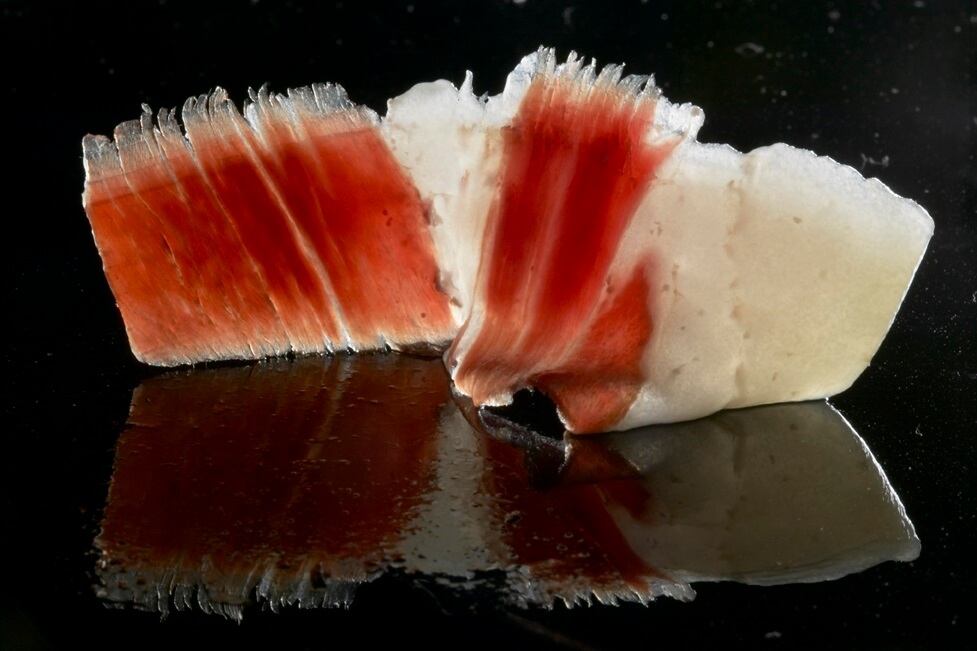

Ham should not be prohibited in diets. The widespread and growing trend to take care of ourselves means that we are more focused on the foods we like and at the same time are frightened by their calorific value. There is good news for those of you who thought that ham was fattening: tasty can also be healthy. Do you know why diets don't exclude ham? Whatever we eat needs to be in line with the calories that our bodies can burn; it is not recommended that you stuff yourself with ham but it is recommended to enjoy it in any balanced diet due to its satisfying and nutritious properties; ham is not as fattening as many people think.
One fact to keep in mind is that 100 grams of Joselito acorn-fed Iberian ham is equivalent to 309 kcal, so if you follow a diet based on the amount of calories that your body needs, together with exercise, up to 50 gr. of Iberian ham twice a week is considered appropriate and healthy.
The fat in ham is the main source of controversy and the reason for the bad reputation of the leg. However, not everyone knows that acorn-fed Iberian ham has exceptional quality fat and is also rich in antioxidants. It is important to remember that the fat depends on a number of factors: the part of the ham that is eaten - with more or less fat, the diet of the animal, the breed, age, sex and habitat. But the reality is that, although we associate ham with a high fat content, more than 50% of the fat in Iberian ham is unsaturated fat, mainly oleic acid (which is good for health). Monounsaturated fatty acids are much higher in pork than in other meats, especially when the animals have been acorn-fed, as it will have a high oleic acid content.
There are basically three types of fat: saturated fat, abundant in foods of animal origin (meat, milk, eggs), considered to be unhealthy in excess and which contribute to weight gain. Monounsaturated fat, which, from the point of view of cardiovascular risk, is considered healthy, as in the case of olive oil. And polyunsaturated fats, which are also considered healthy fats and which are abundant in seed oils and blue fish. Traditionally, pork was thought to contain a lot of saturated fat, hence the erroneous idea that ham is fattening; however, this has been shown not to be the case, since it has less saturated fat than other meats such as beef or lamb.

Another element that is wrongly associated with ham is high cholesterol. Oleic acid, which we find in ham from acorn-fed pigs, raises the production of HDL cholesterol ("good" cholesterol) and lowers LDL ("bad" cholesterol). Thus, moderate ham consumption helps maintain the correct cholesterol levels and prevent cardiovascular disease.
Thanks to its rich nutritional content, in cases of anaemia people are often recommended to eat ham. Iberian ham is a great source of vitamins, especially B group vitamins including B1 and B12, as well as minerals such as iron (in the form of easily absorbable heme-iron), phosphorus, potassium, sodium, magnesium and calcium.
Can ham be seen as an ally in diets? Yes, this is due to the sated effect that it generates and the intake of protein, given that in some diets there is a need for a greater intake of vitamins and minerals to ensure that the diet is balanced.
On the grounds of avoiding weight gain, you may have seen someone remove the visible fat from the ham, popularly known as tocino. This is a mistake, tocino creates the flavour and is one of the most nutritious parts. When you are dieting you can eat a moderate amount of ham, and you can and should allow yourself to enjoy it to the full.
Iberian ham is a traditional part of the Mediterranean diet, the epitome of a balanced and healthy diet. Ham is fattening if eaten in large quantities, as well as many natural foods and other things we eat. But, in the correct quantity, not only does it have a place in a healthy diet, but it is also recommended because of the numerous benefits it offers. And if it is acorn-fed Iberian ham, the percentage of proteins is much higher (and if it is Joselito Ham, besides having health benefits, it also has taste benefits).

No compartimos tus datos. No spam.